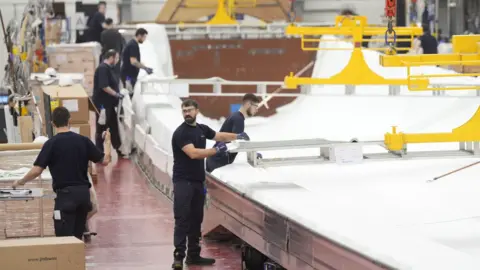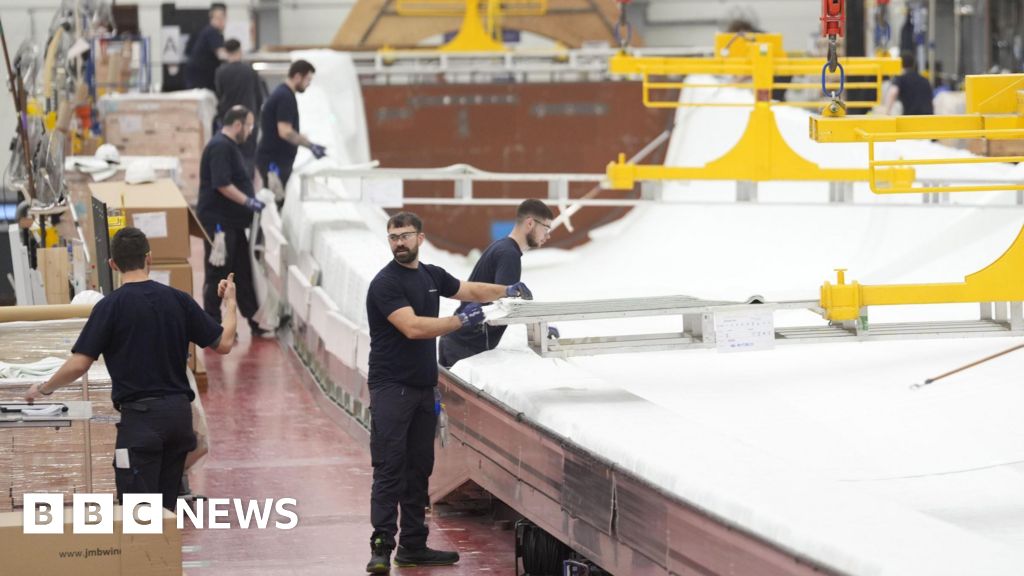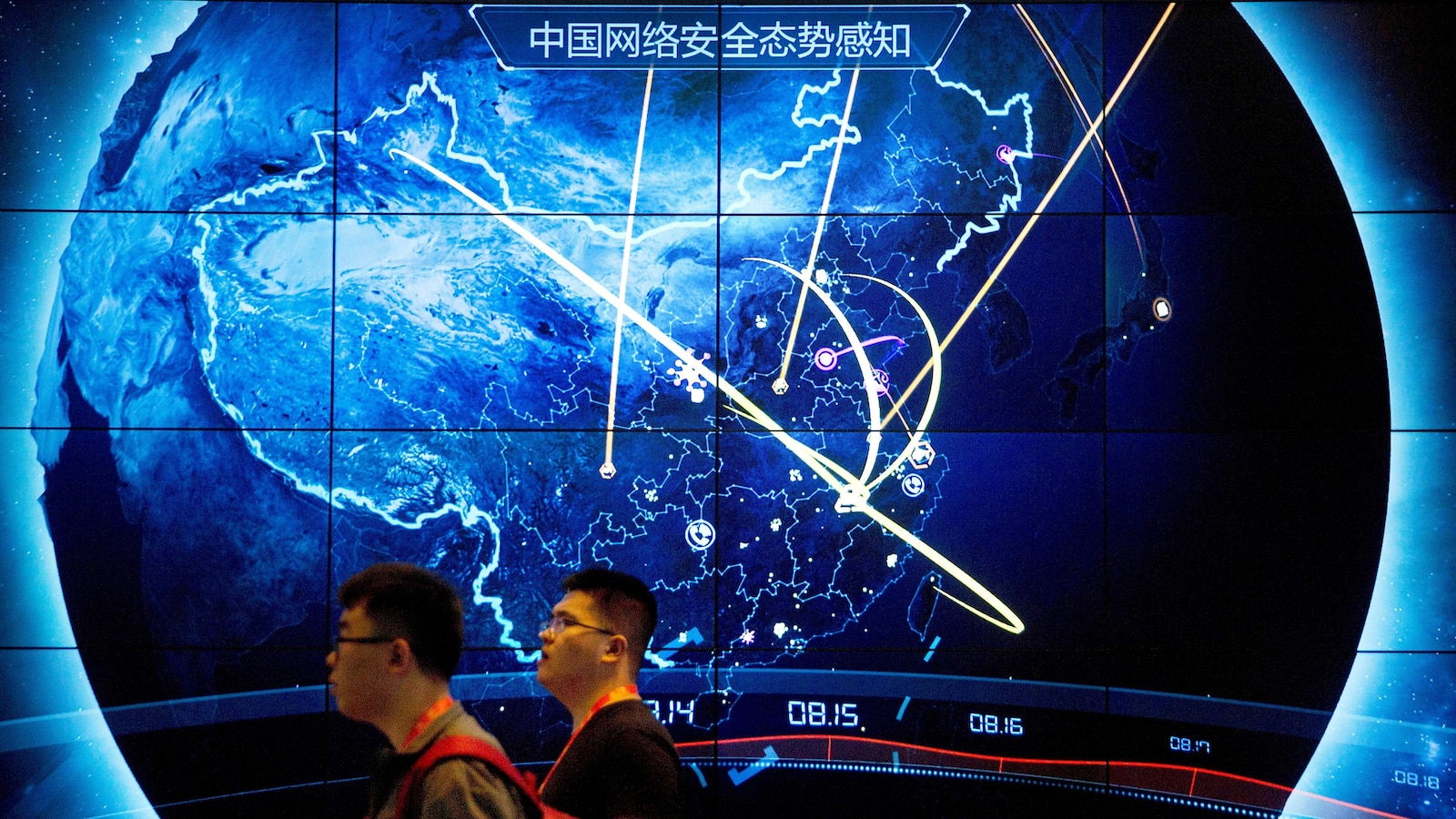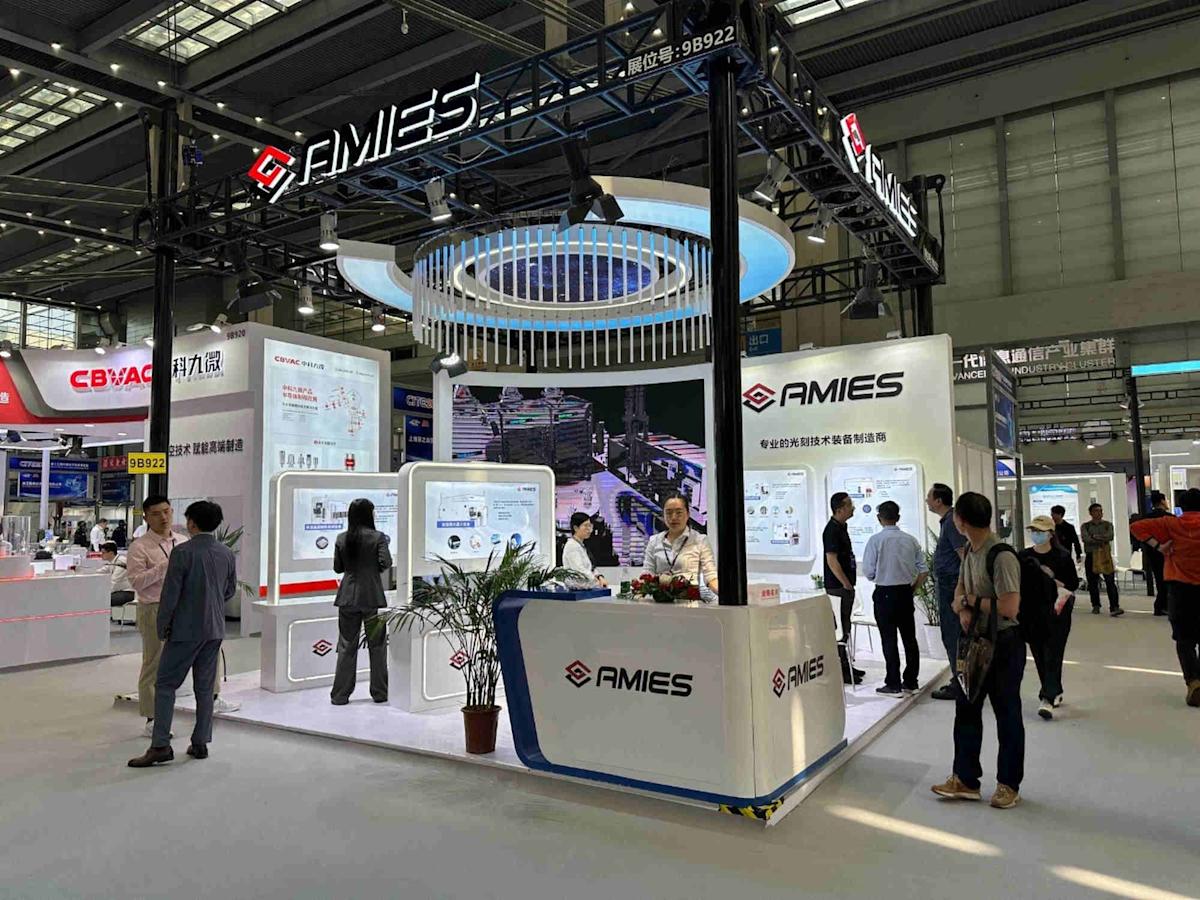Pritti MistryBusiness reporter
 PA Media
PA MediaThe government has announced plans to train and recruit more workers for the UK’s clean energy sector, promising to create 400,000 extra jobs by 2030.
Plumbers, electricians and welders are among 31 priority occupations that are “particularly in demand”, with employment in renewable, wind, solar and nuclear expected to double to 860,000 in five years, ministers have said.
Speaking on the BBC’s Sunday with Laura Kuenssberg programme, Energy Secretary Ed Miliband said thousands of jobs were needed to develop Britain’s clean energy sector to “get bills down for good”.
Welcoming the proposals, Unite the union said: “Well-paid, secure work must be at the heart of any green transition.”
As part of the government’s strategy, five “technical excellence colleges” will be set up to train workers with clean energy skills, with £2.5m in funding going towards pilot schemes in Cheshire, Lincolnshire, and Pembrokeshire, according to the Department for Energy Security and Net Zero (DESNZ).
A new programme is to be launched to match veterans with careers in solar panel installation, wind turbine factories and nuclear power stations, while oil and gas workers could benefit from up to £20m from the UK and Scottish governments for bespoke careers training in clean energy roles.
There would be also be tailored schemes for ex-offenders, school leavers and the unemployed.
He said 10,000 extra jobs would be needed to support the construction of the Sizewell C nuclear power station in Suffolk and described how the Siemen’s wind turbine factory in Hull was “booming”.
Miliband also told the BBC he stood by his pledge to reduce energy bills by £300 by 2030, after bills went up by 2% for millions across the UK under Ofgem’s latest price cap.
In a statement, Miliband said the plan would bring “a new generation of good industrial jobs” to communities across the UK.
“Our plans will help create an economy in which there is no need to leave your hometown just to find a decent job.
“Thanks to this government’s commitment to clean energy, a generation of young people in our industrial heartlands can have well-paid, secure jobs, from plumbers to electricians and welders.”
According to DESNZ, jobs in the clean energy sector command average salaries of more than £50,000, compared to the UK average of £37,000.
Work and Pensions Secretary Pat McFadden said: “We’re giving workers the skills needed to switch to clean energy, which is good for them, good for industry, and will drive growth across the nation.
“Our new jobs plan will unlock real opportunities and ensure everyone has access to the training and support to secure the well-paid jobs that will power our country’s future.”
Christina McAnea, general secretary of Unison, said the government’s strategy could “help create a UK workforce with highly skilled, fairly paid and secure jobs”.
“Additional funding for apprenticeships and opportunities for young people are crucial too if the UK is to have a bright and clean energy future,” she added.







